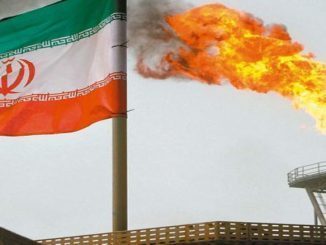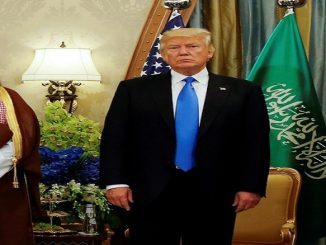
The Western world is witnessing a major shift in the scope of political power, and there are indicators that the current of the political right-wing started to have control over the leading positions in Western countries. In fact, the victory of Donald Trump in the US presidential election, representing the Republican Party, in addition to the Republican Party’s control of the US Congress (Both the House of Representatives and the Senate) gave a strong impetus to the right-wing parties and movements in Europe.
Trump and changing his views
Various media outlets have handled the statements of Donald Trump and highlighted how he changed his views on the same issue more than once, as well as many of his irresponsible remarks. The New York Times has reported that the Public Relations team of Trump’s campaign had fully assumed management of Trump’s account on Twitter and that the team is keen on editing Trump’s tweets thoroughly before they are published. President Obama scoffed at this, saying, “If someone is not able to manage his account on Twitter well, he will not certainly be able to manage the nuclear codes, as was reported by the Huffington Post on November 7, 2016.
For example, Trump said in a speech about the US Army on June 16, 2015, that the US forces will succeed in defeating the Islamic State (ISIS) or Daesh, whether under the commandment of General Patton or General MacArthur. However, on the same day in an interview on Fox News, when Trump was asked if he meant by his remarks that he would send US ground troops to fight Daesh, he refused to answer the question, saying to the interviewer, “I will not tell you anything”. Ironically in the same interview, he changed his mind again, saying that his plan aims to bombard ISIS elements and then to cordon them off. However, minutes later he changed his mind for the fourth time. When the TV interviewer said that the solution lies in invading ISIS-controlled areas, Trump replied quickly: “I disagree with you.”
In another interview with NBC, Trump indicated that he would agree to send troops, but the goal is to retake the oil resources that fell under the control of Daesh, adding: “We will get a lot of money.” Minutes later, he said that the money will go to the families of American soldiers who were killed while they were protecting oil fields. When the interviewer asked him if the money should be given to Iraqi soldiers, not Americans, Trump said that they will be given some, according to a report by Al-Arabiya, on August 18, 2015.
There are other issues where Trump contradicted himself more than once, such as the issue of migrants, as well as his views on Islam and Muslims.
All this suggests the inability of predicting what Trump might do in the future on many external issues, and that there will probably be many interventions by the Republican Party, within the general framework of violence and use of force, adopted by the Republican Party’s right-wing.
Donald Trump and Libya
Trump had accused Hillary Clinton of deploying destruction in the Middle East, saying that she had done so through the invasion of Libya and leaving it to Daesh. He added that “When Clinton took over the Foreign Ministry in 2009, the world was a different place; Libya was a cooperative state, and the Islamic State organization was not existing.
Trump also stated that if Saddam Hussein and Gaddafi had remained in power, the world would have been better today, stressing that his foreign policy will depend on the use of force. “We can look at what happened in Libya and Iraq after the removal of Gaddafi and Saddam as a result of a military intervention led by the United States.” He added that there were not terrorists at that time in Iraq, indicating that Saddam Hussein used to kill them at once. Trump also confirmed that Iraq and Libya are no longer existing and that they have been completely destroyed. It is noteworthy that Trump had sought to set up investment projects with Libya’s Muammar Gaddafi two years before his overthrow in 2011.
Trump pledged last August to deport any illegal immigrant out of the United States if he was elected president. He also said he would form a committee to determine the immigrants of which countries should be denied entry into the United States, stressing that Syria and Libya, will be on top of them.
Trump also stated in May 2016 that the US should bomb Daesh sites in Libya, claiming that they control the oil fields there. The CNN said that this statement represented a new role for Trump and a dangerous escalation of the US military campaign against the Islamic State organization in Libya, although Trump was previously standing against his country’s decision of bombarding Libya in 2011.
The statement of Ahmed Gaddaf al-Dam – the envoy and cousin of Muammar Gadhafi – explained a lot of things, when he announced that he was communicating with the campaign of Donald Trump over the past months. Gaddaf al-Dam added, “America is not only the president,” confirming that “the Republicans vowed to correct the mistakes in Libya.”
Apparently, Trump will follow a policy of using force in Libya, and perhaps he will return to the old forms of occupation and colonialism. Perhaps, the US support under Trump will be directed either to the remnants of the Gaddafi regime to help them restore their strength and take control of Libya, or it will go to Haftar and his forces to help him gain control under US leadership. It is also unlikely that the US under Trump will support the construction of a democratic regime in Libya.



